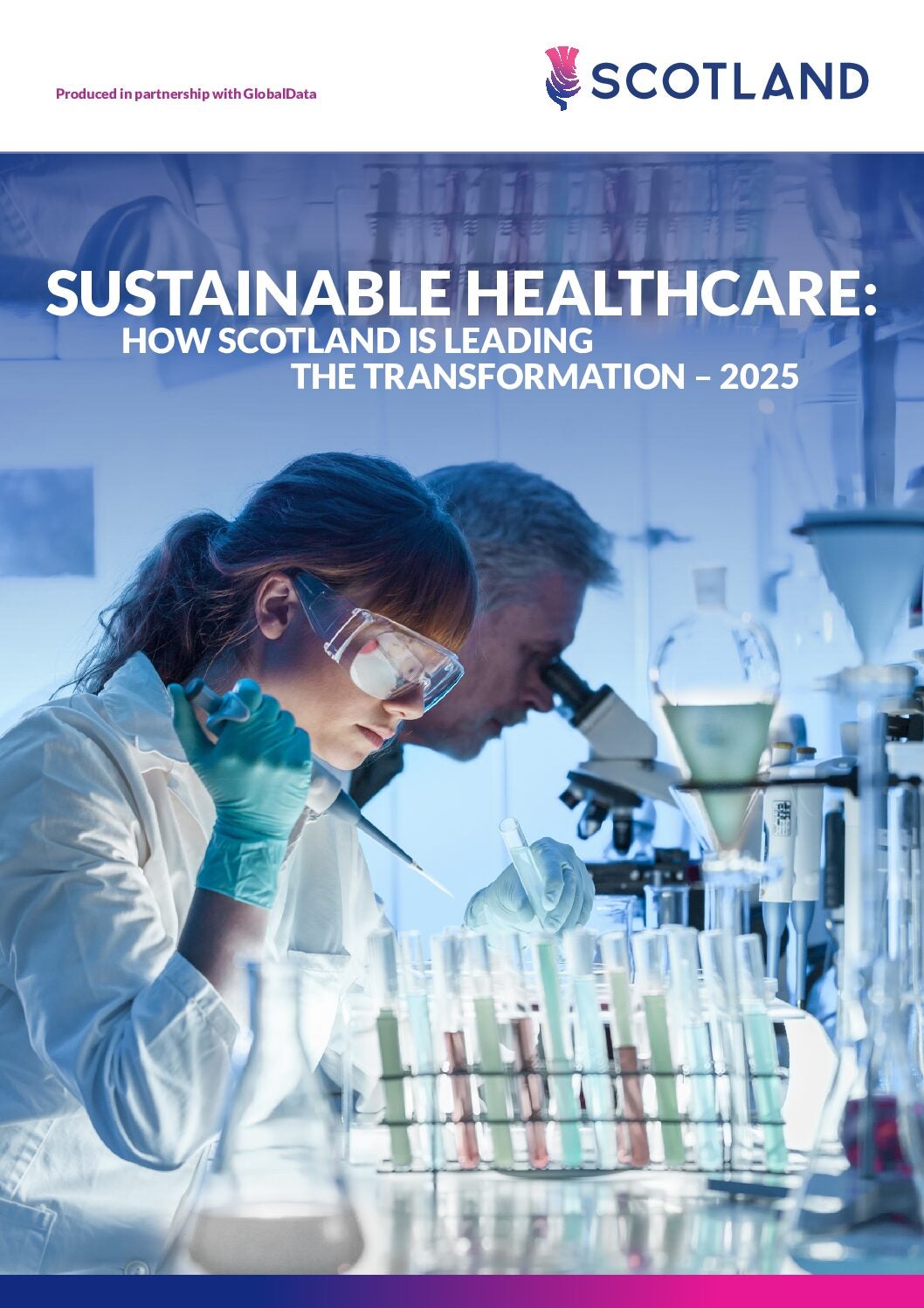
Oligonucleotides (oligos) are short strands of synthetic DNA or RNA that offer huge potential in treatments for a wide range of diseases previously believed to be untreatable, from cancer through to Alzheimer’s.
The transformative effect of such drugs means that the global antisense RNAi oligos market alone is forecast to be worth $18.7bn by 2030, up from $2.4bn in 2024, according to GlobalData analysis.
However, as the pipeline of oligos-based medicines continues to expand, critical issues impacting scale-up of the technology need to be resolved. Oligos manufacturers face significant engineering and costs challenges that currently pose significant challenges to the supply of these life-saving therapies from meeting demand.

CPI’s new state-of-the-art £20m Oligonucleotide Manufacturing Innovation Centre of Excellence in Renfrewshire, near Glasgow, is playing a key role in meeting the UK and Europe’s rising demand for oligos production. Dedicated to expanding the UK’s pharma manufacturing infrastructure, the centre has set itself the mission of scaling oligos manufacturing and transforming sustainably while reducing costs.
Innovations at the centre could see it become a global hub for oligos research and manufacturing, supported by a unique nexus of professionals across academia, small-to-medium enterprises (SMEs), and big pharma.
Why scale is vital for oligonucleotide manufacturing
The commercial rollout of oligonucleotides remains limited. Only a few oligos-based therapies are approved by regulators around the world each year. Nevertheless, the potential impact on healthcare means research in the area is intensive. While there are 24 oligos drugs on the market, there are more than 1,400 in the preclinical or discovery stage, according to GlobalData’s Clinical Trials Database.
The wide range of therapy areas currently under investigation demonstrates the excitement across the industry regarding oligos’ potential applications. Further intelligence from GlobalData shows that oncology remains the most common therapy area for oligonucleotides in development with 897 drugs, but the central nervous system (489 drugs), infectious diseases (337 drugs), and metabolic disorders (287 drugs) are also common fields of study. The successful commercialisation of oligonucleotides could result in an effective cure for multiple debilitating health conditions, improving life expectancies and quality of life for millions of patients around the world.
“We’ve currently got a drug in Phase III trials for Hepatitis B – that’s anti-infectives – potentially huge numbers of patients. There’s another drug in Phase II targeting Alzheimer’s, and a host of options treating heart disease using oligos,” explains Barrie Cassey, medicines manufacturing technology lead at CPI’s Oligonucleotide Manufacturing Innovation Centre of Excellence. “What’s really interesting about oligos is that they let you tackle a disease in a different way. These molecules open up different methods of treatment that can attack the genetic basis of any disease. Nothing is off the table with oligos.”
The main challenges for oligos development
The vast range of health conditions that could be treated through oligos is the principal reason why scale-up of the technology needs to be accelerated. However, there remain barriers to the potential to be fulfilled.
“I had a conversation a few weeks ago where everyone agreed that the big challenge facing oligos is scale of manufacture,” says Cassey. “We’re very worried about getting these medicines to patients because of this limited scale of manufacture. Something needs to change.”
The challenge is twofold. On one hand, engineering issues make it hard to produce large quantities of oligonucleotides. The synthesis process is currently column-based, which limits throughput. On the other hand, the cost of manufacturing oligos remains prohibitively high.
“We’re developing methods to run bigger volumes without these engineering constraints, but there’s still a need to manage that financial risk while increasing the robustness of the process,” Cassey explains.
Dedicated oligonucleotides research in Scotland
Finding new solutions to scale oligos has been challenging as the pharma industry continues to rely on established processes conducted in a handful of international facilities. The establishment of the Oligonucleotides Manufacturing Innovation Centre of Excellence represents a significant leap forward, providing companies and researchers from around the world with a dedicated hub for oligos development.
Operated by CPI, the Centre is jointly supported by the UK and Scottish governments through funding from the Office for Life Sciences, as well as Scottish Enterprise and a range of private sector partners. By creating new skilled jobs and fostering collaborations across pharmaceuticals, the centre will attract investment and reinforce Scotland’s reputation as a leader in life sciences.
“I’m not aware of anywhere else in the world that has our strengths,” says Cassey. “We’re an open innovation centre, so anyone can work with us. We’re doing lots of exciting things with universities at a research level, but also with contract manufacturers and big pharma companies.”
The centre’s dynamic ecosystem is expected to propel oligos manufacturing to a new level, with partnerships and research projects contributing new ideas to scale the technology and techniques.
“We’re working on multiple approaches – we’re not saying that there’s one answer to scaling, and actually, that is part of the answer,” Cassey continues. “It might be one technology that opens up the process, it might be a combination of many. We’re working on multiple fronts with multiple partners to try and get there as quickly as we can.”
With support from Scottish Enterprise, the centre will start producing GMP-grade material in August – becoming the only facility with oligos manufacturing capabilities at that level in the UK, and one of few across Europe. This development will make the Renfrewshire facility an essential supplier to businesses and researchers across the continent while increasing the availability of critical materials.
“Because we’re a GMP facility, we can take innovations and put them into practice,” says Cassey. “This isn’t an academic lab that can only demonstrate methods up to a certain scale. The combination of innovation, manufacturing and skills development will drive the acceleration of new technologies into commercial manufacturing. This makes the centre utterly unique.”
Supporting the scale-up of oligos with a strong supply chain
Alongside developing new manufacturing processes, outreach and education are also required to support the successful scale-up of oligos. In partnership with the University of Strathclyde, the centre has launched a postgraduate training programme to support young researchers in the field.
“We’re trying to get that connectivity between training through to manufacturing scale-up,” explains Cassey. “As well as Strathclyde, we’re working with a range of universities across the UK to apply other technologies to oligonucleotide manufacture.”
Scotland’s expertise in life sciences extends beyond academia to a productive private sector, where multinationals work alongside cutting-edge smaller businesses. The extensive network in Scotland means the centre has access to a range of suppliers, partners, and researchers across the supply chain to support their work, or even become future customers.
“There’s a supportive ecosystem in Scotland,” says Cassey. “There’s a good range of SMEs, as well as companies throughout the supply chain who can provide custom raw materials and downstream manufacture.”
As testament to the centre’s status as an oligos development hub, its annual Oligonucleotide Manufacturing Symposium has become a popular event, attracting expert speakers that include researchers from leading universities and senior engineers from global companies such as GSK, AstraZeneca, and Novo Nordisk.
“Our influence and our engagement have built over the last four years to quite a substantial level,” adds Cassey. “We’re well-connected and respected in what we do.”
To learn more about the scaling up of oligonucleotide manufacturing in Scotland, sign up for the forthcoming webinar here.



